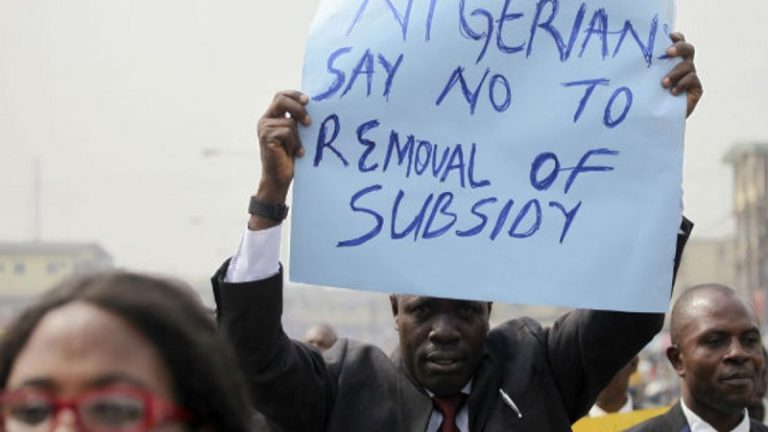
As citizens, public affairs analysts, and social commentators continue to scrutinise President Bola Ahmed Tinubu’s nationwide broadcast on his plans to mitigate the effects of the recently removed fuel subsidy, our analyst examines the broadcast using Karl Marx’s political economy approach in this piece.
Class Struggle and Inequality: President Tinubu’s speech highlights the existence of a select group of unelected individuals who hold enormous influence over the country’s political economy. This group, referred to as the “elite of the elite,” is portrayed as having amassed significant wealth and power, creating a form of class struggle where the privileged few benefits at the expense of the majority. This observation resonates with Marx’s critique of capitalism, where he argues that society is divided into two classes – the bourgeoisie (the owners of capital) and the proletariat (the working class).
Capitalist Exploitation: The President’s condemnation of the fuel subsidy and the multiple exchange rate system reflects concerns over the diversion of national wealth towards a small group of individuals. Marx’s political economy focuses on the inherent exploitation within capitalist systems, where profits are extracted from the labor of the working class and concentrated in the hands of the capitalist class. The speech implies that these economic policies serve the interests of a privileged few at the expense of the wider population.
Register for Tekedia Mini-MBA edition 19 (Feb 9 – May 2, 2026): big discounts for early bird.
Tekedia AI in Business Masterclass opens registrations.
Join Tekedia Capital Syndicate and co-invest in great global startups.
Register for Tekedia AI Lab: From Technical Design to Deployment (next edition begins Jan 24 2026).
Commodification of Labour: The President’s emphasis on the need to end the fuel subsidy can be interpreted as a recognition of the commodification of labour. Marx argued that under capitalism, labour is treated as a commodity, and its value is reduced to the wages workers receive. In the speech, the President appears to challenge the notion that subsidizing fuel serves as a mechanism to control the cost of labour and maintain profits for a select group of capitalists.
Democratic Governance and Power: President Tinubu’s call for democratic governance and the sovereignty of the people aligns with Marxist critiques of the political superstructure under capitalism. Marx argued that the ruling ideas in society are the ideas of the ruling class, and democracy under capitalism may be distorted or influenced by the dominant economic interests. The President’s concern over the unelected elite influencing the political economy reflects this critique.
Promoting the Welfare of the Masses: While President Tinubu advocates for the removal of the fuel subsidy and the overhaul of the exchange rate system, he also emphasizes his commitment to promoting the welfare of the masses. This aligns with Marxist ideals of socialism, which advocate for a society where the means of production are collectively owned and the benefits are distributed more equitably among the population. The President’s proposed interventions to support small businesses, farmers, and education, as well as his focus on financial inclusion, echo these socialist principles.
Our analyst notes that it is essential to reiterate that this analysis is based on the content of the speech and does not provide a comprehensive understanding of President Tinubu’s overall political ideology or actions. Additionally, Marxist analysis is one among many lenses through which political economy can be examined, and other perspectives may offer different insights into the issues addressed in the speech.


